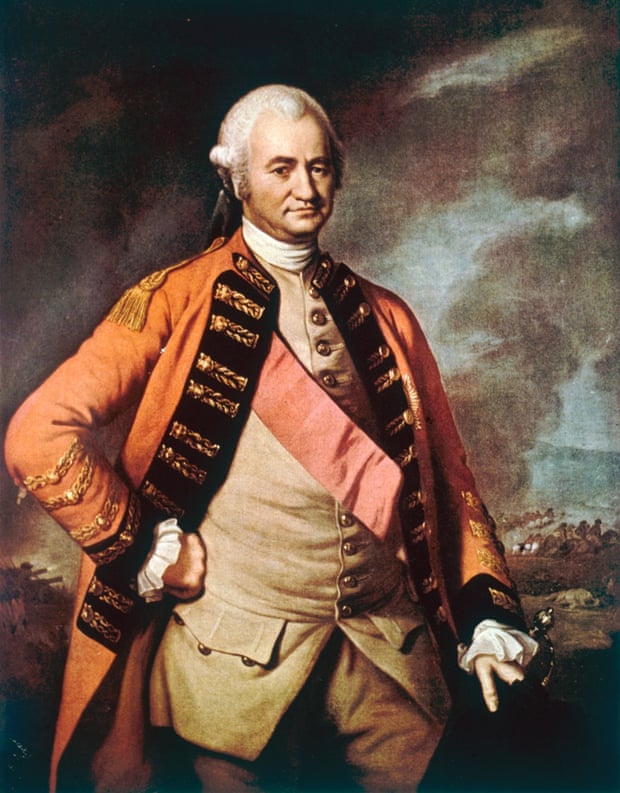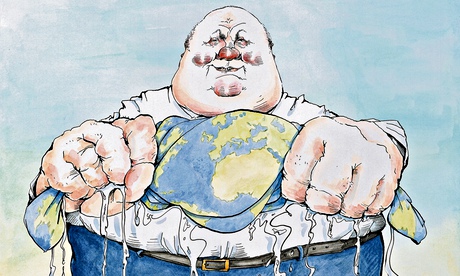If you walk along Britain’s poorest streets, the phrase “left behind” – in vogue again after many such places voted to leave the EU – takes on a complex meaning. It’s not just that they are lagging behind the richer, better-connected places. It can seem, as you survey the pound stores and shuttered pubs, that these towns have been discarded: left behind, as in “unwanted on the journey”. Wealth has flowed out of them to somewhere else.
The logical question should be: who did this? Sometimes it’s obvious: in Ebbw Vale, for example, the answer is the Anglo-Dutch steel company Corus, which closed the plant in 2002. In many places it’s not obvious. Jobs seep away; council services are privatised; bus timetables dwindle; the local school gets taken over by a “superhead” from somewhere else, outsourcing the dinner ladies on day one. You can get angry about it, but there is nobody specific to be angry at.
Faced with the same problem, union and community organisers in the US have, in the past 12 months, adopted a novel way of fighting back. Through a campaign group called Hedge Clippers, they have begun tracing the lineages of financial power behind the decisions that affect specific places, and targeting those financiers – pension funds – with a new kind of pressure.
Steve Lerner, one of the instigators of the 1980s Justice for Janitors campaign, which, for the first time, organised migrant cleaning workers in the US, explains how the tactic evolved. “We were organising janitors working for contract cleaning companies: but they’re just middlemen,” he said. “So we targeted the building owners. It turned out they, too, were dependent on banks and pension companies, so we got a trillion dollars worth of pension money to say it won’t invest unless there is decent pay. Then we asked ourselves: OK, what else do they own?”
It turns out, quite a lot. In Baltimore, the city’s privatised water industry hiked its bills. Then, when people started to fall behind in payments, the city agreed to bundle up their unpaid bills into a financial vehicle called a “tax lien” and sell it to investors. The investors can, after two years, evict people from their homes for non-payment.
When campaigners looked at who was buying up the debt, they included an anonymous company linked to one of the biggest hedge funds in America: Fortress Investments, with $23bn worth of assets invested in “the largest pension funds, university endowments and foundations”.
Since the 2008 crisis, with returns on government bonds negative, and stock market dividends depressed, pension funds have been pouring money into the hedge fund sector. “It’s a form of assisted suicide,” Lerner argues: “Workers are investing their pension money into firms whose mission is to destroy us.”
He set up Hedge Clippers, which aims to force pension funds to divest from companies whose investment strategies fuel the cycle of impoverishment.
If you apply the same approach to Britain, you’re dealing with a different ecosystem. No city has yet securitised the unpaid debts of the poor, as Baltimore did. While there is no shortage of predatory lenders to the poor, there are – after a campaign led by Labour MP Stella Creasy – at least elementary controls on them.
However, pension funds are now the biggest source of money for UK hedge funds, according to a Financial Conduct Authority survey last year, with 43% of their money coming from institutional investors. The most obvious act of financial predation is the private finance initiative (PFI), where schools and hospitals were built with vastly lucrative private loans. As a result, the taxpayer is committed to paying back £232bn on assets worth £57bn.
Many pension funds, either directly or indirectly, are investing in the so-called “infrastructure funds” who buy up PFI debt. The investment analyst Preqin found 588 institutional investors worldwide with “a preference for funds targeting PFI”, 40% of which were based in Europe.
Tracing the more complex ways institutional finance is funding the cycle of impoverishment is not easy. What you would want to know, in places such as Stoke-on-Trent or Newport, is not just who took the decisions to close high-value workplaces but, more importantly, who makes the decisions that lead to chronic under-investment now. Governments, including the devolved ones of the UK, spend a lot of time and money effectively bribing global companies to create jobs and keep them in Britain’s depressed areas. Communities themselves have little or no input into the process, which is in any case all carrot and no stick.
Lerner’s initiative in the US grew out of trade union activism, because the unions there learned to follow the money instead of wasting time trying to negotiate with the powerless underlings of global finance. They worked out that, in an age where the workplace and the community can seem like two different spheres of activism, it is the finance system that links the two.
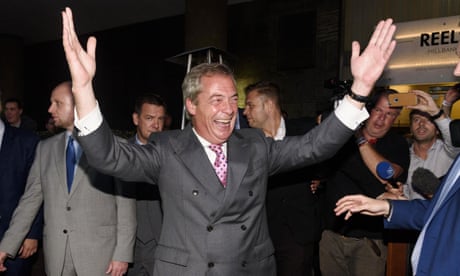
Older ‘left-behind’ voters turned against a political class with values opposed to theirs
Union organising of the unorganised, and community activism in Britain have both traditionally been weak because top-down Labourism has been strong. Faced with PFI, predatory loans, rip-off landlords and privatisation, the British way is to demand legislation, not chain yourself to the door of a Mayfair hedge fund.
With or without Jeremy Corbyn, the near-impossibility of Labour gaining a Commons majority in 2020 – whether because of Scotland, boundary changes, a hostile media or self-destruction – has to refocus the left on to what is possible to achieve from below. We have to start, as the Americans did, by mapping the invisible forces that strip jobs, value and hope out of communities; make them visible; trace their dependencies and then use direct action to kick them in the corporate goolies until they desist.
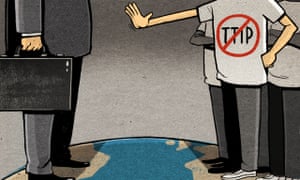
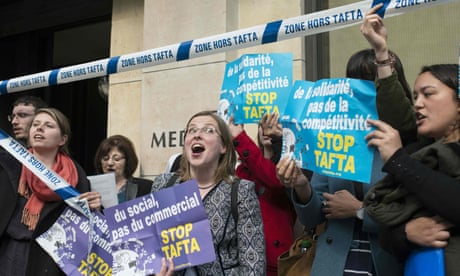
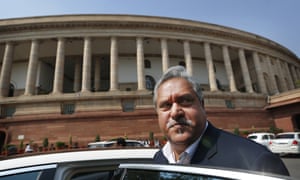

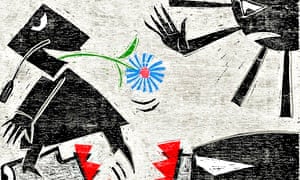 ‘
‘
